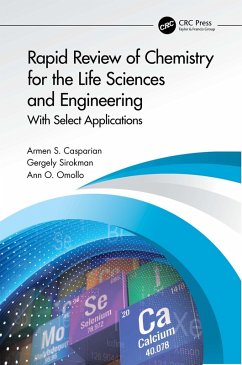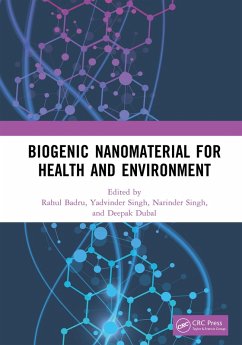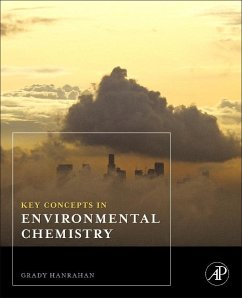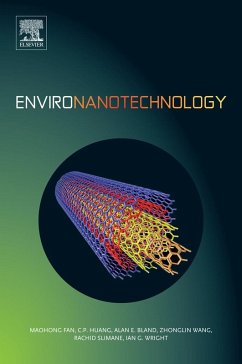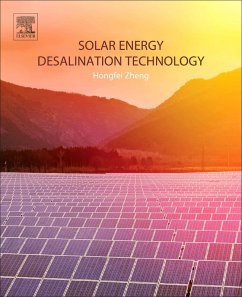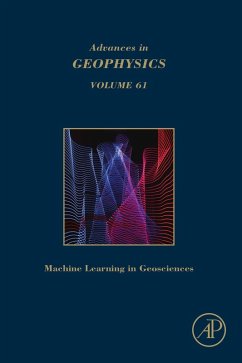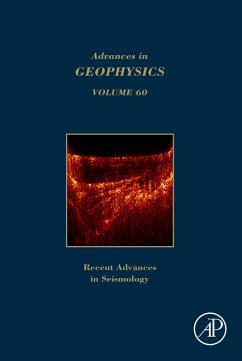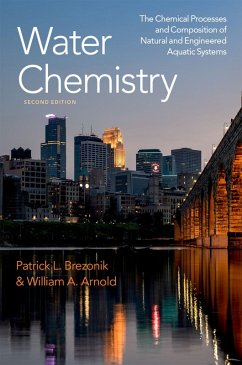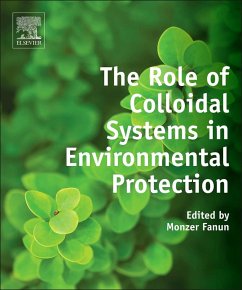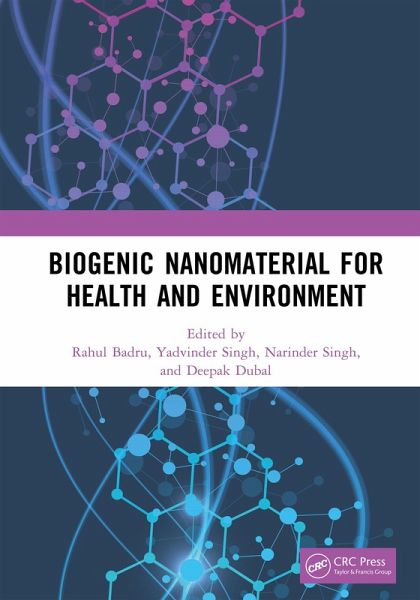
Biogenic Nanomaterial for Health and Environment (eBook, ePUB)
Versandkostenfrei!
Sofort per Download lieferbar
52,95 €
inkl. MwSt.
Weitere Ausgaben:

PAYBACK Punkte
26 °P sammeln!
The book titled Biogenic Nanomaterial for Health and Environment covers the synthesis, characterization, and applications of nanomaterials synthesized using living organisms, like bacteria, algae, fungi, plants, and biomolecules derived from them. This book is intended to meet the needs of undergraduate and graduate-level students of chemistry, biology, nanotechnology, and chemical engineering disciplines. The book will also serve as a useful reference work for researchers working in the fields of nanochemistry, material science, biology, and industrial chemistry.FEATURES A systematic overview...
The book titled Biogenic Nanomaterial for Health and Environment covers the synthesis, characterization, and applications of nanomaterials synthesized using living organisms, like bacteria, algae, fungi, plants, and biomolecules derived from them. This book is intended to meet the needs of undergraduate and graduate-level students of chemistry, biology, nanotechnology, and chemical engineering disciplines. The book will also serve as a useful reference work for researchers working in the fields of nanochemistry, material science, biology, and industrial chemistry.
FEATURES
This book is compiled in such a way that it aids in understanding the underpinning concepts of the biogenic synthesis of nanoparticles. The biogenic synthesis of nanoparticles delivers more important and effective prospects for nanotechnology researchers. The biomass derived from various organisms acts as a template for the synthesis of nanoparticles with desired structural and featural aspects. The rewards of employing biomass and molecules derived from organism of choice in the synthesis process of nanoparticles are able to enhance the electrochemical consistency, control particle size, reduce toxicity, and escalate reactivity in an eco-friendly way. This book will provide the latest insights into the synthesis of nanomaterials employing biomass, cell extract, or as a whole, of various organisms and their roles in the health and remediation of the environment.
FEATURES
- A systematic overview of the biogenic synthesis nanomaterial.
- Recent research results and pointers to the advancement in the field.
- Discussion of putative applications of biogenic nanomaterials in health and the environment, with a main emphasis on biocidal activity, disease diagnosis, drug delivery, and sensing and remediation of pollutants from the environment.
This book is compiled in such a way that it aids in understanding the underpinning concepts of the biogenic synthesis of nanoparticles. The biogenic synthesis of nanoparticles delivers more important and effective prospects for nanotechnology researchers. The biomass derived from various organisms acts as a template for the synthesis of nanoparticles with desired structural and featural aspects. The rewards of employing biomass and molecules derived from organism of choice in the synthesis process of nanoparticles are able to enhance the electrochemical consistency, control particle size, reduce toxicity, and escalate reactivity in an eco-friendly way. This book will provide the latest insights into the synthesis of nanomaterials employing biomass, cell extract, or as a whole, of various organisms and their roles in the health and remediation of the environment.
Dieser Download kann aus rechtlichen Gründen nur mit Rechnungsadresse in A, B, BG, CY, CZ, D, DK, EW, E, FIN, F, GR, HR, H, IRL, I, LT, L, LR, M, NL, PL, P, R, S, SLO, SK ausgeliefert werden.




